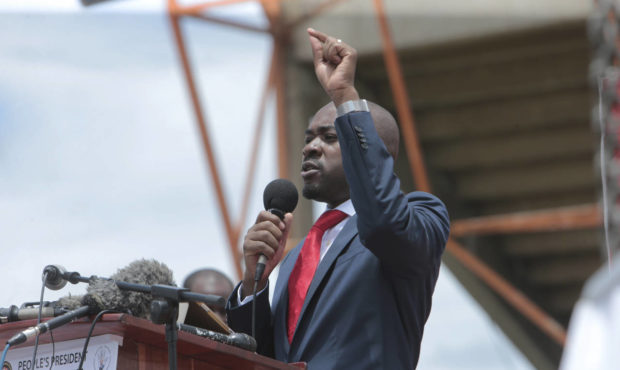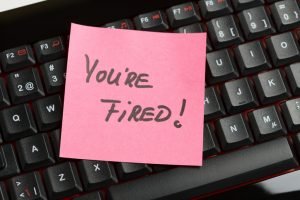(image via Getty)
This column has already discussed a number of hassles associates often need to deal with while working at law firms. Indeed, associates must usually conform to archaic notions about the workplace, and are sometimes hazed during the first few years they work at a firm. Associates at many law firms also need to complete personal chores for partners that have absolutely nothing to do with the practice of law. Although some partners may view themselves as Miranda Priestly-like figures who can order associates to complete personal chores, partners should refrain from requiring associates to complete their personal tasks that have nothing to do with legal work.
When I was an associate in Biglaw, I felt like I had hit the jackpot. Only a small fraction of law school graduates secure spots in Biglaw, and as an associate at a large firm, I was in a better financial situation than most people my age. This sentiment was definitely undercut by the pecking order of the firm at which I worked, which required associates to “kiss the ring” in order to advance in the organization. Kind of like that movie The Pursuit of Happyness, associates needed to be ready to complete personal tasks of the partners in order to curry favor with the brass and hopefully secure their blessing when it came time to be reviewed or considered for advancement.
On more than one occasion, I was asked to get coffee by a partner. I was fine with completing this task, but I was unsure why the partners couldn’t just get up and head to the Keurig machine themselves, since it was pretty easy to whip up a cup o’ Joe. At least one time that I can remember, a partner also tasked me with getting him lunch. I had already eaten lunch myself, so I had to make a separate trip just to pick up this partner’s meal.
Thankfully, the partner told me to get money from his secretary for the lunch so that I did not need to go out-of-pocket in order to secure his meal. I remember walking over to the restaurant and walking back, frustrated that I had endured three years of law school, the bar exam, and other crucibles just to be the boss’ errand person. Thankfully, the partner seemed pleased with me when I arrived back at the office with his lunch.
A few minutes later, the partner came into my office while munching on a sandwich that I had just picked up for him. He wanted to talk about a project that I was working on, and he apparently did not even have time to put down his sandwich. While he was talking, a part of his sandwich landed on the carpet of my office! This definitely added insult to injury, since I had to grab a napkin off of my desk after the partner left and clean up the food I had just bought for him.
Another time, some other junior associates and I were tasked with running the March Madness pool at our office. Shortly before the deadline to submit brackets through the internet-based system we were using, a partner came to me with handwritten brackets for himself and his family members. I then spent an hour or two translating these handwritten submissions into the system.
In order to do this, I had to use each of my personal email addresses to set up new accounts for all of these friends and family members of the partner. To this day, I still get spam email to my personal email addresses that I think are a result of these efforts. If I recall correctly, I even had to contribute my own money to the March Madness pool until the partner paid me back for the submissions made by his friends and family members. I have absolutely no idea why these folks could not make their submissions through the easy-to-use online system we were using to run the pool, but because partners viewed junior associates as their errand people, I got tasked with performing this role myself.
I think partners in Biglaw are more guilty of making associates complete personal chores than managers at other types of firms. Biglaw partners know that associates owe their big paychecks and their lifestyles to them, and they likely feel more enabled to order associates to complete their own personal chores. When you pay associates lower salaries, there is less of an expectation that attorneys will go above and beyond to please their bosses, such as completing personal tasks of the partners.
It should be noted that other attorneys have told me many (extremely entertaining) examples of associates completing personal chores for partners, but in order to preserve the confidentiality of those who told me their stories, I won’t mention them here. I hope people will share their own experiences on social media posts related to this article, or email me directly about their stories. Many attorneys I know have their own horror stories about completing personal chores for partners, and I’d love to learn about the experiences of others.
Before someone accuses me of being a “snowflake” online, I don’t think that partners ever crossed any lines with ordering me to complete personal chores (although, some of the stories I’ve heard from others definitely do!). However, just because associates are at the bottom of the law firm hierarchy does not mean that they should be required to complete personal chores for the partners. Unless you work for a boss like the one depicted in The Devil Wears Prada, partners should only require associates to complete legal work as part of their law firm jobs.
 Jordan Rothman is a partner of The Rothman Law Firm, a full-service New York and New Jersey law firm. He is also the founder of Student Debt Diaries, a website discussing how he paid off his student loans. You can reach Jordan through email at jordan@rothmanlawyer.com.
Jordan Rothman is a partner of The Rothman Law Firm, a full-service New York and New Jersey law firm. He is also the founder of Student Debt Diaries, a website discussing how he paid off his student loans. You can reach Jordan through email at jordan@rothmanlawyer.com.



 Kathryn Rubino is a Senior Editor at Above the Law, and host of
Kathryn Rubino is a Senior Editor at Above the Law, and host of 



 Olga V. Mack is the CEO of
Olga V. Mack is the CEO of 




